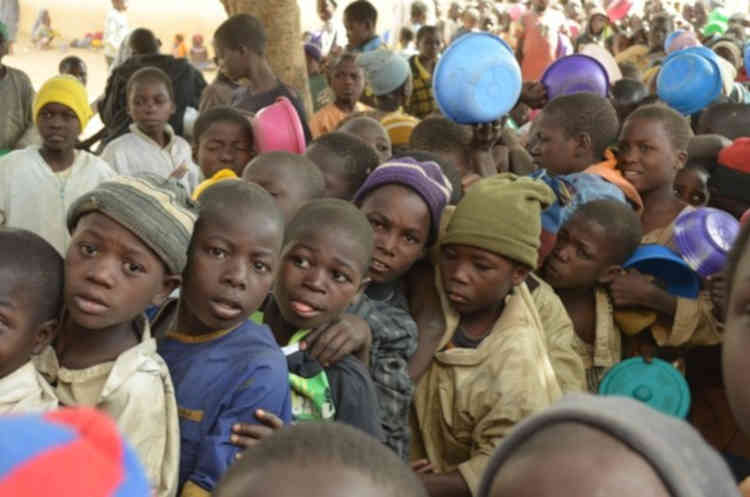- Where is our shame? Where is our collective responsibility? Allah Ya Isa!
In the last month, social media has been awash with multiple scenes, most from Northern Nigeria, of mile-long queues of hungry young children—Almajirai or Almajiri children as they are now referred to; bowls in hand, waiting for food. These images stand in stark contrast with recent images that have also been circulating for the last year in the same region; of displays of opulent lifestyles and exhibition of immeasurable wealth. These contrasts of extreme wealth and extreme poverty pervade our everyday reality across Nigeria. However, it is haunting when the displays of such opulence are in a region that is in the throes of an interminable insurgency; an ongoing humanitarian crisis, the crux of which is some of the worst development indices in the world, with about 80 % of the population living on less than $2 a day.
Read Also: The Northern Nigeria And The Rest Of Us
At one time, Almajiri, the plural of which is Almajirai, meaning learner, was used in Northern Nigeria to refer to “one who searches for knowledge and displays high moral rectitude.” However, Almajiri is not just a Northern Nigeria phenomenon. It is part of the wider Islamic practice of dedication to learning, and of devotion and submission to the will of the Almighty. As such, this system began as a form of education built on strong moral and religious foundations with a strong social component. Parents would relinquish the care of their children at a tender age to become wards of an Islamic teacher and study the Quran under his tutelage. Historically, families were still responsible for the upkeep of their children, however, with the increasing inability of parents to cater for their needs, communities stepped in to provide the children with clothing and food. Many of our homes had a large pot of food every night specifically for the Almajirai. It was a dignified and orderly system; we provided for young pupils as learners, who would one day themselves become Islamic scholars and teachers.
Today, the name Almajiri has become synonymous with seemingly abandoned children roaming the streets of our nation, seeking alms, begging, and sometimes engaging in criminal activity as a result of their basic survival needs not being met. And, Almajiranci – the act of being an Almajiri has become a perpetual situation for the children; evidence of pervasive societal neglect. They signify an abdication of our collective responsibility amidst waste and abuse of resources derived from our commonwealth, which allows the perpetuation of a system that no longer has basis in religion or culture.
The original intention of the Almajiri system of education cannot be faulted. Northern Nigeria is predominantly Muslim, and a Quranic education is a crucial feature of Islam, and was seen as a revered, parallel and analogous system to Western education. The initial failings of the system were akin to the failings of our non-Islamic schools; poor infrastructure and pedagogy and an abysmal quality of formal education for the teachers resulting in high levels of illiteracy and ignorance. However, in tracing the collapse of the Almajiri system, external historical factors cannot be overlooked. Professor Idris A. AbdulQadir writes on the topic: “…with the disposal of many Emirs and the defunding of religious schools by the British [during the colonial era], formal control over the Almajiri system was lost. This is certainly the genesis of the predicament of the Almajiri system today.” The failure of this system became more acute precisely because the institution was built on noble foundations tied to a paternalistic, humane and altruistic society that no longer exists. The schools, no longer maintained by the State, communities and parents, succumbed to the pressures of economic crises, particularly after the lost decades of the 1990s. The increased financial precarity of the post-Structural Adjustment era undermined the capacity of many citizens to maintain levels of hospitality and generosity in accordance with conventional religious and socio-cultural expectations.
AFRICA DAILY NEWS, NEW YORK










